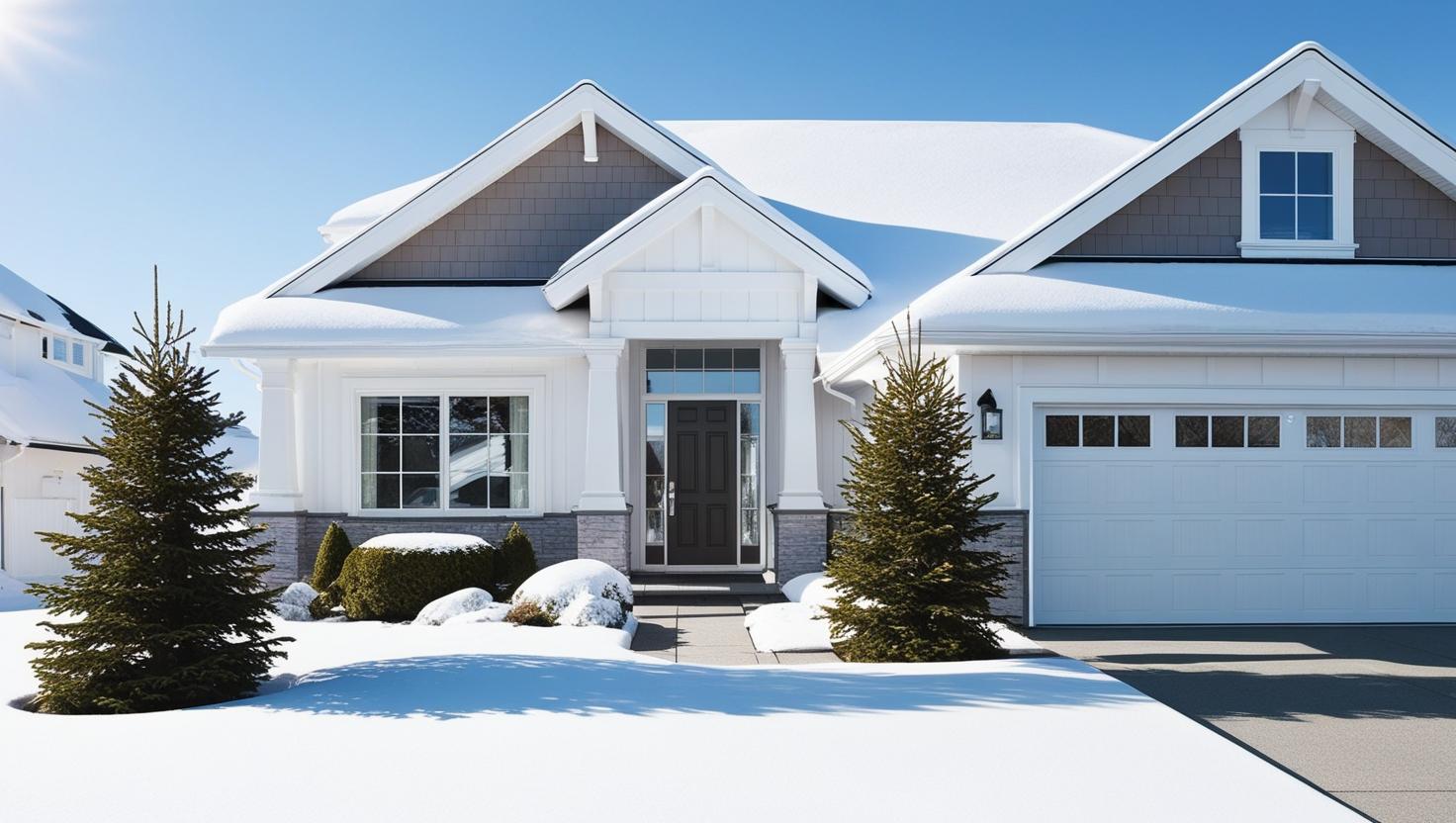Winter might not seem like the ideal season to go house hunting, but it actually offers a unique advantage—cold weather can reveal issues that might be hidden in the warmer months. If you’re buying a home in winter, here are some key things to look for to ensure you’re making a smart investment.
1. Heating and Insulation
A well-insulated home is crucial for energy efficiency and comfort. Check for drafts around windows and doors, and ask about the home’s heating system. A furnace that struggles to keep the house warm in winter could mean high energy costs down the road.
2. Roof Condition
Winter weather can be tough on a roof, so it’s essential to check for any signs of damage. Ice dams, missing shingles, and uneven snow accumulation could indicate poor insulation or structural issues. If the roof is covered in snow, ask for documentation on its age and condition.
3. Windows and Doors
Older or inefficient windows can lead to heat loss and higher utility bills. Look for condensation between window panes, which could be a sign of seal failure. Open and close doors and windows to ensure they fit properly and don’t let in cold air.
4. Plumbing and Water Damage
Frozen or burst pipes are common issues in winter. Run taps to check water pressure and ask about any past plumbing problems. Look for signs of water damage on ceilings and walls, which could indicate leaks or poor insulation.
5. Basement and Foundation
Winter is a great time to inspect a home’s basement. If there’s moisture or a musty smell, it could mean inadequate drainage or foundation cracks. Snow and ice buildup around the foundation can also lead to long-term damage, so check for proper grading and drainage.
6. Driveway and Walkways
Icy, uneven, or poorly maintained driveways can be dangerous and expensive to repair. If possible, visit the home after a snowfall to see how easily the driveway and walkways can be cleared.
7. Neighbourhood and Accessibility
Winter conditions can reveal how well the neighbourhood is maintained. Are the roads and sidewalks plowed? Is the home easily accessible during heavy snowfall? These factors can impact your daily life and should be considered.
8. Gutters and Drainage
Ice buildup in gutters can lead to water damage. Check if gutters are clear and properly directing water away from the home. Poor drainage can lead to issues in the spring when snow begins to melt.
9. Exterior and Landscaping
While landscaping may not be a priority in winter, you should still assess the yard’s layout. Large trees close to the home could pose a risk in storms, and poorly graded yards can cause flooding issues in the spring.
10. Home Inspection
A thorough home inspection is even more critical in winter. Some areas might be harder to check due to snow, so be sure to hire an inspector who has experience assessing homes in winter conditions.
Buying a home in winter comes with its own set of challenges, but it can also give you a clearer picture of how the house handles cold weather. By focusing on heating, insulation, structural integrity, and overall accessibility, you can make a well-informed decision and find a home that’s comfortable year-round.
Looking for expert advice on your home search this winter? Contact our team at Century 21 United Realty at 705-743-4444—we’re here to help you find the perfect home, no matter the season!

 Facebook
Facebook
 X
X
 Pinterest
Pinterest
 Copy Link
Copy Link



